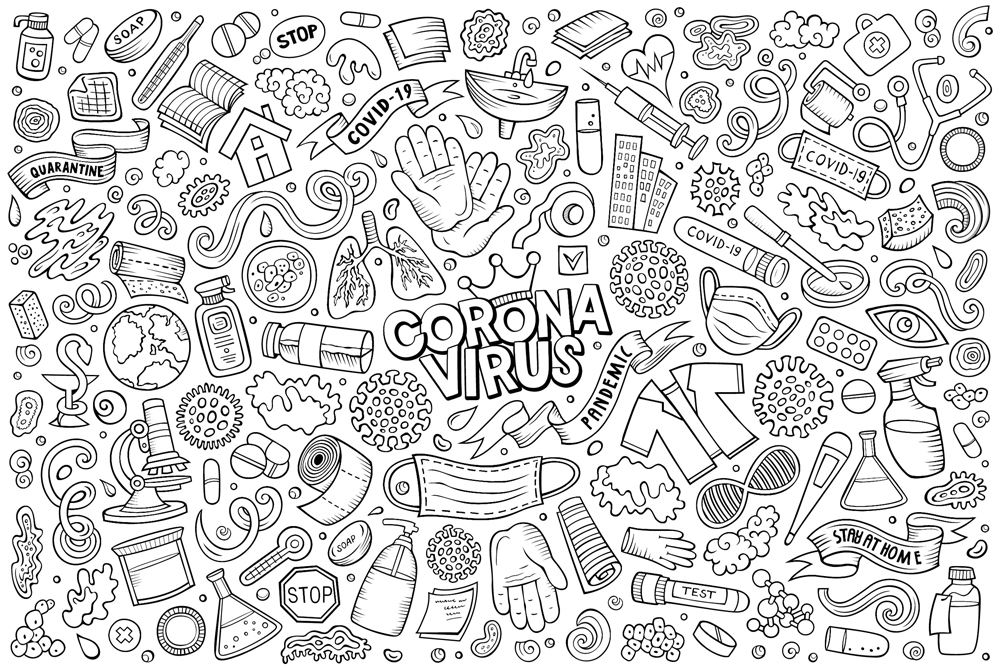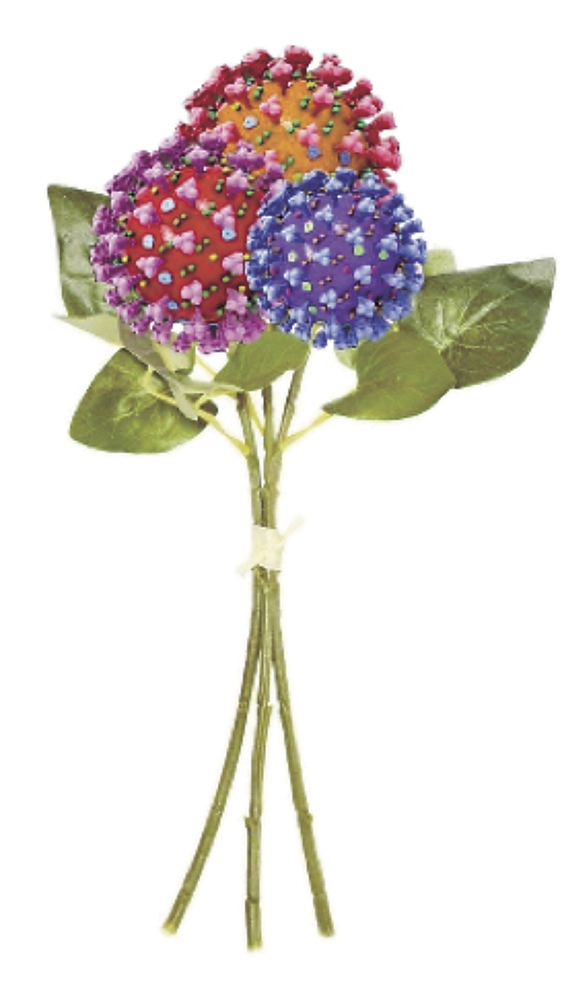Be a part of a community poem reflecting on the pandemic
Submit contributions for crowd-sourced poem by December 30, 2022; finished product to be displayed at Ogden Farmers’ Library in 2023

by Teresa Schreiber Werth
I was recently invited to watch a National Geographic documentary about the pandemic shown at the Dryden Theatre in Rochester. It is entitled, The First Wave, a film by Matthew Heineman (US 2021, 93 min.) Here is the synopsis that was shared with me:
Given remarkable access to a New York City hospital from March to June, 2020, director Matthew Heineman (Cartel Land, A Private War) documents the first four months the COVID-19 pandemic hit the United States. Combining up-close footage of nurses and doctors battling the disease in intensive care and emergency rooms, and interviews with those workers and family members of victims, this truly unforgettable film provides a visceral account of the physical, emotional and social work involved with saving lives and losing lives in such an extraordinary situation. The First Wave shows the world the reality of crisis care from the perspective of those in its midst that will certainly leave a lasting impression.
Since editing and publishing an anthology, Navigating the Pandemic: Stories of Hope and Resilience, about those very same four months of 2020, I was extremely interested in this film.
The First Wave lived up to everything promised in the synopsis: it honestly, brutally honestly, gave a visceral account of the physical, emotional and social work involved with saving lives and losing lives in early 2020 in NYC. In fact, while my personal pandemic experience was more of an inconvenience than a trauma, watching this film was painful to the point of making me feel guilty for how little I suffered. It reminded me of my emotional response to walking through the Holocaust Museum or the 9/11 Museum. It filled me with grief. And I kept thinking about how the stories documented in the film were a tiny fraction of the stories of pandemic loss and suffering.
Now I am asking you to reflect on your pandemic experience and share some of your thoughts. I am inviting our whole community to participate in a unique writing project, a poetry challenge, by submitting lines describing how you’ve been affected by the pandemic.
Submission criteria:
Each submission should reflect on the short essay by Arundhati Roy, “The Pandemic Is a Portal” (see sidebar).
1) Each submission should begin with the same words: What is this thing that has happened to us?
2) Suggested word limit – 150 words (sometimes less is more)
3) No vulgarity will be accepted. This is a family-friendly project.
4) Write about your personal pandemic experience: what YOU saw, felt, learned, struggled with, found comforting. Write about what stands out in your experiences of the past three years? Dig deep and share honestly.
5) Submissions may or may not rhyme
6) All submissions are donated by the writer to be considered for the final community poem.
7) Submissions will not be used to profit any one or any organization. Submissions remain the property of each writer.
8) Deadline: December 30, 2022
9) Send submissions in the text of an email to: OurCommunityPoem@gmail.com (No attachments will be accepted).
10) Failure to follow submission guidelines will disqualify an entry.
I will choose the submissions to be used to create a crowd-sourced, community poem documenting our pandemic experiences. Contributors chosen will be acknowledged in the final presentation. Our creation will be displayed at the Ogden Farmers’ Library in the new year. Stay tuned for those details.
Teresa Schreiber Werth is a retired communications professional, certified wedding/funeral celebrant, freelance writer and published author. She initiates this Community Pandemic Poem Project as a means of bringing us together to reflect on our pandemic experiences, to promote healing, resilience, and hope and to foster a sense of our place in history.
“The Pandemic Is a Portal”
by Arundhati Roy
What is this thing that has happened to us?
It’s a virus, yes. In and of itself it holds no moral brief. But it is definitely more than a virus. Some believe it’s God’s way of bringing us to our senses. Others that it’s a Chinese conspiracy to take over the world.
Whatever it is, coronavirus has made the mighty kneel and brought the world to a halt like nothing else could. Our minds are still racing back and forth, longing for a return to “normality,” trying to stitch our future to our past and refusing to acknowledge the rupture. But the rupture exists. And in the midst of this terrible despair, it offers us a chance to rethink the doomsday machine we have built for ourselves. Nothing could be worse than a return to normality. Historically, pandemics have forced humans to break with the past and imagine their world anew. This one is no different. It is a portal, a gateway between one world and the next.
We can choose to walk through it, dragging the carcasses of our prejudice and hatred, our avarice, our data banks and dead ideas, our dead rivers and smoky skies behind us. Or we can walk through lightly, with little luggage, ready to imagine another world. And ready to fight for it.



